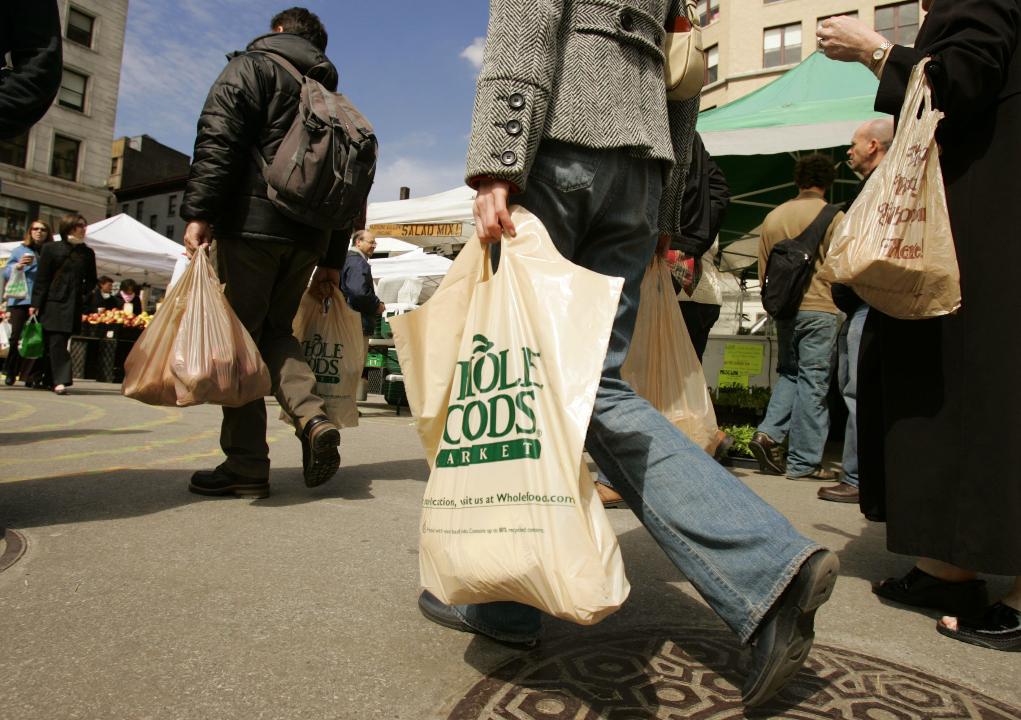Amazon's Whole Foods deal could spark bidding war
Amazon’s (NASDAQ:AMZN) announcement to buy organic grocer Whole Foods (NYSE:WFM) invigorated the company’s stock prices on Friday, but with the tie up expected to close in the last half of the year, there’s still room for another bidder to throw a wrench in the e-commerce giant’s plans to storm into the food-retail space.
“In theory, all retailers that sell food and compete with Amazon [could be potential bidders] because we think most have too much to lose not to bid,†said Barclays U.S. food and staples analyst Karen Short.
The online-retail juggernaut has flirted with the idea of playing meaningfully in the grocery aisle for a while with its AmazonFresh service that lets customers fill digital baskets and schedule appointments for same or next-day delivery. But with its $13.7 billion deal, the company is sending a strong signal it means business when it comes to disrupting a space in which traditional brick-and-mortar players like Kroger (NYSE:KR), Walmart (NYSE:WMT), Target (NYSE:TGT), Albertsons, Sprouts (NASDAQ:SFM), and host of others have comfortably played for years.
Given that desire to disrupt, other bidders may try to make Amazon’s Whole Foods purchase more expensive or opt to eliminate its entry into the space altogether. Armed with its recent Jet.com acquisition and a slew of other buys so far this year as it steps up its intense rivalry with Amazon, Walmart is seen as one potential suitor for Whole Foods. The move would allow it to double down yet again on its determination to become a dominant force in the e-commerce space.
Other possible acquirers include Kroger, Target, or Sprouts, said Dave Sutton, CEO at marketing firm TopRight and former senior consultant at Booz Allen Hamilton.
“Each would have different reasons, all would rather not see Amazon have it,†he said.
Keeping Whole Foods away from Amazon would not only minimize those retailers' ability to face immediate and intense competition in the home delivery space, but also prevent Amazon from gaining an immediate launching pad for a well-defined grocery service with built-in infrastructure. Instead, those efforts built by the Whole Foods brand over the last several years could combine with an industry mainstay to create an even bigger combined brand.
“Someone like Sprouts might see this as a way to leapfrog and take its brand to the next level by leveraging goodwill from the Whole Foods brand, which has been the category captain in this higher end, fresh, quality end of the grocery sector,†Sutton said.
If the deal does receive the blessing of both Whole Foods’ shareholders and regulators, it would force existing grocery-store operators to substantially accelerate their home-delivery strategy. And the easiest and most time-efficient way to do that would likely be through acquisition.
“Amazon would have all the pieces: They can sell in brick-and-mortar stores, they can sell online, or they can deliver to customers’ door steps. So, to stay competitive, Kroger, Walmart, Albertsons – any of those players – will have to come up with a competitive way to do the same thing,†Sutton said, pointing to grocery-delivery startup Shipt, which has offered third-party service to Publix and Kroger, as a possible acquisition target.
“They’ll become the crown jewel for a Target, Kroger, Safeway, or other brand,†Sutton said.




















